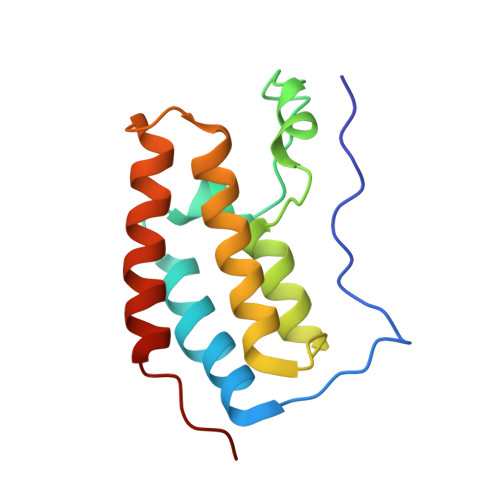Assessment of Bromodomain Target Engagement by a Series of BI2536 Analogues with Miniaturized BET-BRET.
Koblan, L.W., Buckley, D.L., Ott, C.J., Fitzgerald, M.E., Ember, S.W., Zhu, J.Y., Liu, S., Roberts, J.M., Remillard, D., Vittori, S., Zhang, W., Schonbrunn, E., Bradner, J.E.(2016) ChemMedChem 11: 2575-2581
- PubMed: 27862999
- DOI: https://doi.org/10.1002/cmdc.201600502
- Primary Citation of Related Structures:
5KJ0 - PubMed Abstract:
Evaluating the engagement of a small molecule ligand with a protein target in cells provides useful information for chemical probe optimization and pharmaceutical development. While several techniques exist that can be performed in a low-throughput manner, systematic evaluation of large compound libraries remains a challenge. In-cell engagement measurements are especially useful when evaluating compound classes suspected to target multiple cellular factors. In this study we used a bioluminescent resonant energy transfer assay to assess bromodomain engagement by a compound series containing bromodomain- and kinase-biasing polypharmacophores based on the known dual BRD4 bromodomain/PLK1 kinase inhibitor BI2536. With this assay, we discovered several novel agents with bromodomain-selective specificity profiles and cellular activity. Thus, this platform aids in distinguishing molecules whose cellular activity is difficult to assess due to polypharmacologic effects.
Organizational Affiliation:
Center for the Science of Therapeutics, Broad Institute, Cambridge, MA, 02142, USA.
















